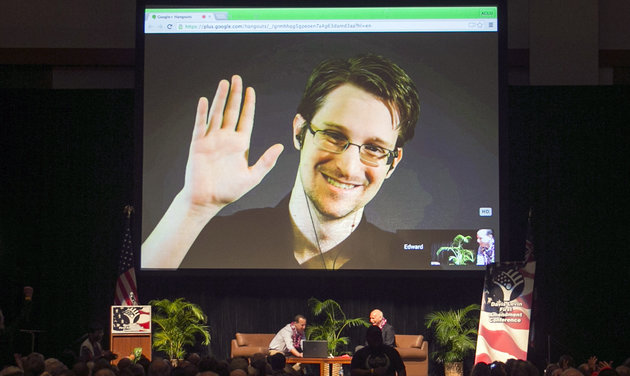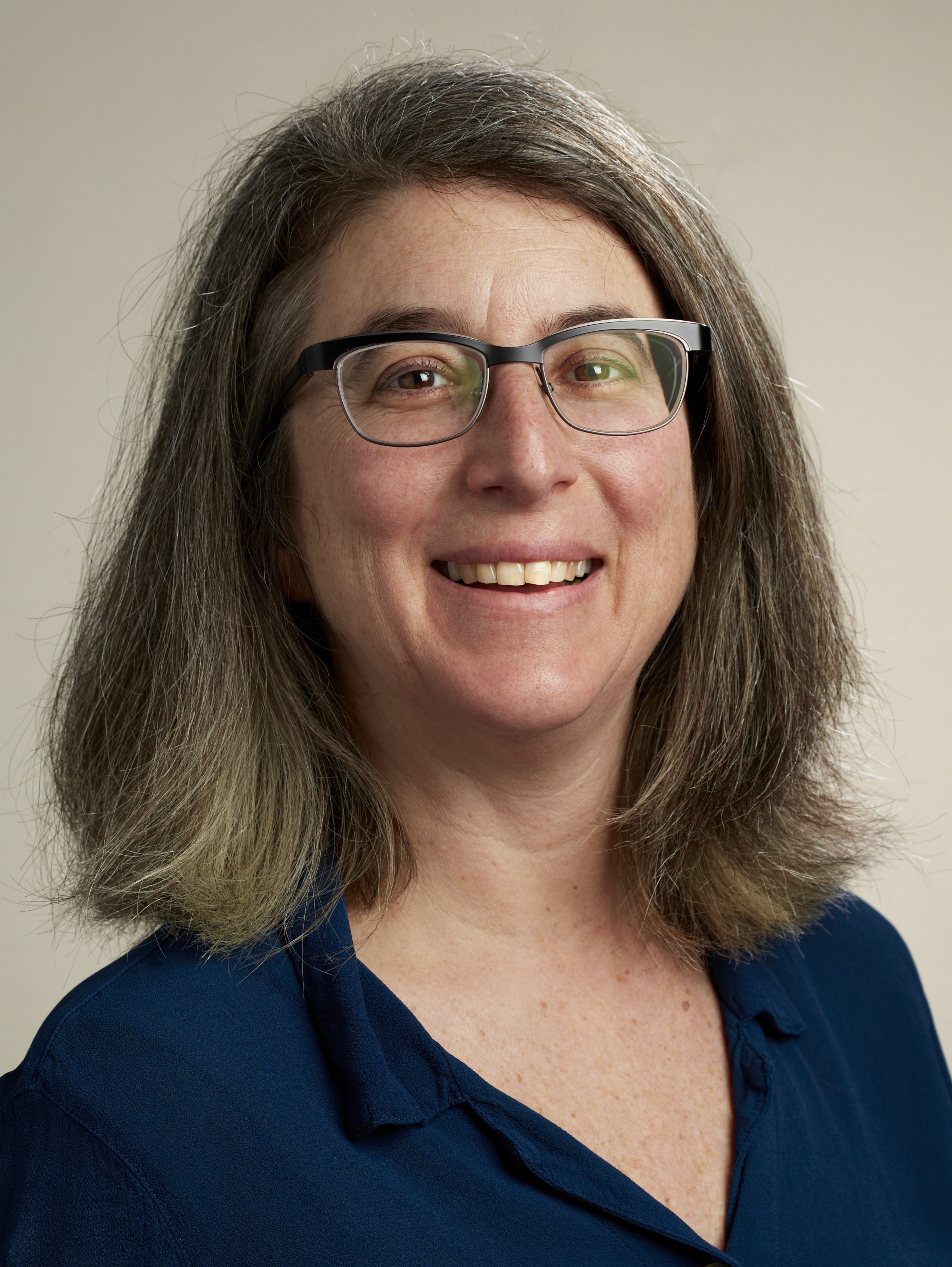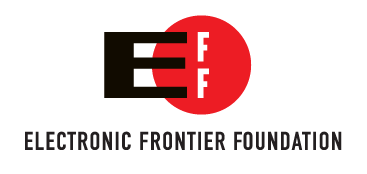Thanks to OpenTranscripts :-)
Chelsea Manning’s Statement for Aaron Swartz Day 2015
Donate to Chelsea’s legal defense fund to help with her appeal.
Download Chelsea Manning’s Statements as a PDF file.
Chelsea E. Manning 89289 1300 North Warehouse Road Fort Leavenworth, Kansas 66027-2304
2015.11.07
Statement for Aaron Swartz Day and International Hackathon-2015
The Human Element – International Aaron Swartz Day Hackathon
Hello Everyone,
First, I’d like to apologize for the awkwardness of this written medium. I would love to speak in person – as well as attend and contribute to – events like these, but certain circumstances are complicating my ability to travel and communicate in any fashion recognizable to most of us in the 21st century.
In fact – seeing that this is a technology event – l’d like to talk about the incredible ubiquity and access that society now has to highly connected information technology devices. It seems to me, at least, that as we enter the era of ubiquitous computing, the so called “Internet of Things” – with cell phones hugging against our hips, laptops and tablets in everyone’s bag, and toasters that have the uncanny ability to sort our music libraries in the wrong way and have uncomfortable conversations with our grumpy selves in the morning – we have begun to blur the lines within our Human society in unexpected and even exciting ways.
Looking at the rapid advances in our social and political sphere in the information era – such as the cultural progress queer and trans movements have started to make – the relationships between such things as gender and sexuality, between art and work, between gender and work, and between sexuality and art, have blurred in incredible ways. Now there are elements and ideas which seem to implement the concepts of “transhumanism,” and its becoming normal for more and more people who anticipate – as well as fear – the economic, information, and technological “singularity” at the supposed end of our exponential graphs in our own lifetimes.
But, consider the paradox that technology has provided for us. We seem more diverse and open as a society, but isn’t it also the case that we are more homogenous and insecure than we ever have been in the last century or so? You might try and tell me something like – “Well, today’s tools provide us with the ability to be more independent from the control of our governments and corporations than ever before.” But, I ask, do they really? I don’t think very many people in here are convinced that technology is a purely liberating tool, as we are now seeing that it can also be used to censor, to control, to monitor, to anticipate, to imprison, and sometimes even kill.
I am arguing that we can be independent and liberated as a society even without advanced technology. It seems that some people today even find their independence by embracing the Luddite philosophy – ditching their cell phones for the weekends, or avoiding the Internet at certain times of the day or week. But, I hope you don’t think that you have to run to the hills of Montana and live in a cabin for years on end – that seems a little disproportionate, haha.
Today, as is obvious in some of the headlines that we see online – we are in a constant technological arms race, and I think that it’s important to realize that we are always only a single breakthrough away from making the methods of network obfuscation and encryption pointless or unusable. While I agree that it’s unlikely, it certainly is well within the realm of possibility that we might wake up tomorrow morning – or, if we’re really honest, tomorrow afternoon for some of us – and find out that some truly brilliant or devious mathematician or mathematicians have solved the Riemann Hypothesis, throwing entire regions of our encryption arsenal into turmoil. Or, we might wake up and find out that a six, eight, or even ten qubit quantum computer with near perfect error correction has been built, effectively accomplishing the same thing.
The point I’m trying to make here is that – and it is sometimes hard for those of us in the tech community to accept – that our technology can only take us so far on its own. Rather, it is the Human element that is so important, and unfortunately very easy to forget.
As most of us are acutely aware, our software can be written to accomplish a task that, in the right hands, solves incredible problems, creates miracles, eliminates boundaries, and saves lives. Think about, for instance, the entertainment provided by streaming videos and video games, the real-time artificial intelligence applications that are used in automated cars, manufacturing plants, and medical equipment, or the so called “big data” platforms being applied for Internet search, marketing, political campaigning, and healthcare.
Yet, that very same software with a few minor tweaks can, in the wrong hands, cause immense problems, create nightmares, raise insurmountable boundaries, and destroy and even end lives. Think about how the same technology used in streaming video, video games, real-time command and controls, and artificial intelligence, can also be used in unmanned aircraft armed with missiles to wreak havoc on barely discernible people hundreds or thousands of miles away. Think about the statistical “nudges” in big data algorithms that create gender, racial, ethnic, gender identity, sexual orientation, religious, political and other biases across large swaths of the online population. Also, think about the intensifying polarization and heavy focus on precision targeting on “swing voters” in the political realm. Real people in real places in real time are affected – sometimes on an immense scale.
Software is only a tool. Technology is only a toolbox. It’s what we create our software for, what we intend to use it for, and who we allow to use it, and how much, that really count.
I now believe that today’s coders and engineers have an extra “hat” that we have to wear on top of the colorful spectrum of hats we already have – namely, the technology ethicist and moralist hat. Whether we’re amateurs or professionals, and despite whether we want to or not, it has now become another duty that we have. I only hope that the majority of us can figure out and fully understand what that is going to entail as we approach the edge of our graphs. In fact, Human lives and the future of Humanity may depend on it.
Thank you for your time everyone, and good luck in your endeavors. I would especially like to thank Lisa Rein for her lovely letter last month inviting me to speak before you all. It was an incredibly warm and heartfelt letter that made my day a little brighter.
Good night, everyone.
CHELSEA E. MANNING
Chelsea’s statement is available under a Creative Commons Attribution-ShareAlike 2.0 Generic License (CC BY-SA 2.0)
Chelsea Manning Prepares Special Statement For Aaron Swartz Day Celebration
Donate to Chelsea’s legal defense fund to help with her appeal.
In support of this year’s Aaron Swartz Day and International Hackathon, Chelsea Manning has prepared a special statement that will be read at Saturday night’s Celebration of Hackers and Whistleblowers at the Internet Archive.
HERE IS THE LINK FOR A LIVE WEBCAST OF TONIGHT’S SPEAKERS, at 8:00 pm PST. (Movies only seen by attendees.)
Meanwhile, Chelsea has written an Op-Ed for the Guardian on why the FISA courts should be abolished. (She’s also published a 129-page surveillance reform bill.)
Sign this petition from Fight For The Future to tell your politicians to read Chelsea’s bill.
Fisa courts stifle the due process they were supposed to protect. End them
Intelligence agencies will always seek to collect more data. But the courts that oversee them must be as concerned about due process as they are with secrets
From the article:
Those courts were established nearly 40 years ago, in response to allegations that the intelligence community was abusing their power in order to spy on US citizens: the US Senate’s Church Committee conducted a massive investigation into the intelligence community and expressed concerns that the privacy rights of US citizens had been violated by activities conducted under pretenses of foreign intelligence collection.
The result then was new procedures and the creation of a new court system – the Foreign Intelligence Court – to process surveillance requests by the government in secret. Unfortunately, it also created a new host of oversight problems: only a similar secret court process can review the actions taken by the courts, leaving many in Congress and all of the American public in the dark.
Some of these systemic problems have finally been examined by non-Fisa courts in the last two years – most notably by the US court of appeals for the second circuit early in 2015. However, because of the continuing secrecy of the Fisa courts, any ruling by a court of appeals was only a symbolic gesture. The USA Freedom Act, for all that it’s trumpeted as the solution to some of the excessed, does little to institute real oversight over the Fisa courts.
The solution: we should abolish the entire Fisa Court system and bring all surveillance requests into the oldest and most tested court system in America: the US district courts and courts of appeal.
EFF: Aaron Swartz Hackathon This Weekend Is Your Chance To Hack for a Better World
Aaron Swartz Hackathon This Weekend Is Your Chance To Hack for a Better World
From the post:
This weekend marks the third annual Aaron Swartz Day hackathon, and a chance for you to meet up with other people working to use technology to make the world a better place. Once again, cities around the world will host two days of meetups.
The Internet Archive in San Francisco is the main event hub, with film screenings, talks from developers working on projects started or inspired by Aaron, a mini-conference of privacy-enhancing technologies, and a two-day hackathon.
The hackathon will focus on SecureDrop, an anonymous whistleblower document submission system originally developed by Aaron, and now maintained by the Freedom of the Press Foundation. SecureDrop has grown significantly in the years since Aaron began the project—it is now installed in newsrooms around the world—and it benefits from a robust community of developers and supporters who help build and document the project. Lead developer Garrett Robinson will lead the hackathon and explain where people with different skillsets can pitch in.
SecureDrop will not be the only thing to work on. The founder of the OpenArchive project will also be there to lead prospective hackers on developing that app. Developers from our own Privacy Badger browser tool will be there hacking, and EFF staff technologist Cooper Quintin will present during the privacy mini-conference.
Also at the privacy mini-conference on Saturday: presentations on Keybase; former EFF staffer Micah Lee, now with The Intercept, presenting on encryption for journalists; and Brad Warren on exciting developments with the Let’s Encrypt certificate authority.
Starting at 6pm after the first day of hacking, the Internet Archive will host a reception where people can meet. At 7:30, there will be a rare opportunity to see excerpts of the upcoming “From DeadDrop to SecureDrop,” a documentary about that software and Aaron’s role in developing it.
Finally, on Saturday night from 8 to 10pm an impressive line-up of speakers, including EFF Executive Director Cindy Cohn and co-founder John Perry Barlow, will present on their work and Aaron’s legacy. Tickets for the evening event—including the reception, screening, and talks—are available on a sliding scale.
The hackathon and mini-conference continue on Sunday, with more talks from Library Freedom Project’s Alison Macrina and Restore The 4th’s Zaki Manian.
For friends of EFF, and people who want to advance the causes Aaron dedicated his life to, this weekend’s event is a can’t-miss. If you can make it, please RSVP so the organizers can plan accordingly. We hope to see you there.
Aaron’s Open Library Project Lives On
Giovanni Damiola has just been added as a speaker for Saturday’s Celebration of Hackers and Whistleblowers. He will say a few words about how he and Jessamyn West have been working on the Open Library project this past year. The Open Library was one of Aaron’s first projects, right after Creative Commons.
Giovanni was a hacker at last year’s San Francisco Aaron Swartz Day
Hackathon. He ended up getting a job at the Internet Archive shortly after last year’s event, and has now taken on Aaron’s beloved Open Library project, which attempts to create “a page for every book” in existence. Giovanni revamped the site to be more stable, and a re-index found 500,000 books, authors and editions lying around. Here’s an up to date “status report“ on the project from Librarian Jessamyn West. It’s also a project you can hack on at the hackathon this weekend.
The Open Library lends books to people in countries with no public libraries, and Jessamyn frequently uses Google translate just to read and reply to email from all over the world.
Although originally envisioned by Aaron as providing, “a page for every book, so you can find the book, so you can buy it, or borrow it, it’s become much more than that, and is, in fact, a lifeline to information for many countries.
As Jessamyn explains, “I was around when Open Library was first getting started, and I think the people who built it and designed it were way ahead of their time. I’m really happy to get to carry-on Aaron’s legacy of sharing as much as possible to as many people as possible.”
Freedom of the Press Foundation: Come Hack on SecureDrop at the Third Annual Aaron Swartz Day

Come hack on SecureDrop and Celebrate the Third annual Aaron Swartz Day
From the blog post:
Next week on Saturday November 7th is the third annual Aaron Swartz Day, which celebrates the life of Aaron and the many wonderful Internet projects he created or worked on during his brief but brilliant life.
One of Aaron’s last projects was SecureDrop, the open-source whistleblower submission system, which Freedom of the Press Foundation adopted after his untimely passing in 2013. Every year on Aaron Swartz Day, we help host a weekend-long hackathon in Aaron’s honor.
This year, the hackathon will be held at the Internet Archive in San Francisco (there are also other cities holding similar events). We will be at the Internet Archive on Saturday and Sunday to help guide and hack alongside any volunteer developers who want to learn about SecureDrop and work on the many open issues.
If you’re interested, you can read through our developer guide and the new-and-improved SecureDrop documentation. On our GitHub page, there is a list of open issues, and by November 7th, many will be tagged specifically for developers to work on at the hackathon.
Please RSVP for the hackathon here if you’d like to attend.
Also make sure to stick around the Internet Archive Saturday night for the Aaron Swartz Day celebration. There will be many great speakers at the event, including SecureDrop’s lead developer Garrett Robinson to talk about the latest on the project, as well as two of our board members and co-founders, Micah Lee and J.P. Barlow.
Many thanks to Lisa Rein, who tirelessly organizes Aaron Swartz Day every year and always makes it a celebration to remember.
EU Parliament Votes To Drop Charges Against Snowden

This is not a blow against the US Government, but an open hand extended by friends. It is a chance to move forward. pic.twitter.com/fBs5H32wyD
— Edward Snowden (@Snowden) October 29, 2015
From the Huff Po Article:
By a vote of 285 to 281, Members of European Parliament (MEP) passed a resolution Thursday calling for EU member states to drop criminal charges against the former NSA contractor and protect him from extradition…
Snowden faces the possibility of extradition to the U.S. should he enter any of the EU’s 28 member countries. At the time of his departure, Snowden applied for — and was denied — asylum in Austria, Finland, France, Germany, Ireland, Italy, the Netherlands, Poland and Spain. The FBI pursued him relentlessly, even notifying Scandinavian countries in advance of their intent to extradite him should he leave Moscow via a connecting flight through any of their countries.
The new EU proposition specifically asks countries to “drop any criminal charges against Edward Snowden, grant him protection and consequently prevent extradition or rendition by third parties, in recognition of his status as whistle-blower and international human rights defender.”
Snowden called the vote a “game-changer” on Twitter, adding, “This is not a blow against the US Government, but an open hand extended by friends. It is a chance to move forward.”
“Terminal F” Explains How Julian Assange and Sarah Harrison Helped Snowden Get Asylum In Russia
If you haven’t seen this yet, you are in for a treat.
The film features Ed Snowden, Julian Assange, and Sarah Harrison, explaining first hand, how they managed to assist Snowden on his journey from Hong Kong to the Moscow Airport, and, eventually, to safety (obtaining political asylum in Russia).
Come to our celebration of hackers and whistleblowers that make the world a better place, November 7th, 7:30 pm. (Reception 6pm.)
(Tickets $10, $20, Free)
Two New Talks Added to Privacy-enabling Mini-Con, Courtesy of the EFF!
Just Added! On Saturday, the Electronic Frontier Foundation will be participating in the Privacy-enabling Mini-Conference going on at the San Francisco Aaron Swartz Day Hackathon:
At 1pm, Cooper Quintin, Staff Technologist for the Electronic Frontier Foundation, will talk about the what, where, and how of Privacy Badger, EFF’s privacy-enhancing creepy-tracker-blocking browser extension. Come learn how you’re being tracked online, and how you can use Privacy Badger to take back your privacy as you browse the web. (People will also be hacking on Privacy Badger at the SF Hackathon.)
At 4pm, Brad Warren, a Let’s Encrypt Developer, will present Let’s Encrypt, a joint project between the Electronic Frontier Foundation, Mozilla, Akami, Cisco, the University of Michigan, and open-source developers around the world. Let’s Encrypt is a free, automated Certificate Authority which anyone can use to quickly, easily, and securely set up HTTPS on their website in minutes–and the best part is you don’t even need to be a cryptographer or an experienced sysadmin to use it! In his talk, Brad will explain why setting up HTTPS is so difficult without Let’s Encrypt, how Let’s Encrypt is different, and how you can use Let’s Encrypt to secure your website and help bring the world one step closer to a completely encrypted web.
RSVP to the Privacy-Enabling Mini-Con (or the SF Hackathon).
It is likely the live event (at 7:30 pm on November 7th) will be sold out. Get your moderately priced or free ticket now. Thanks! :-)
Tonight! See Cindy Cohn in Los Angeles: “A Report Back From the Legal Front Line”
Mass Surveillance: A Report Back From the Legal Front Line
First Unitarian Church of Los Angeles will host a discussion featuring Cindy Cohn, EFF’s Executive Director. A leading voice in the legal struggle to defend digital rights, Cindy has worked on First Amendment and privacy cases since 1993, when she served as the outside lead attorney in a successful First Amendment challenge to U.S. export restrictions on cryptography. She currently represents First Unitarian Church in its lawsuit challenging mass NSA surveillance, an issue she will address earlier that afternoon at oral argument in Jewel v NSA, a preceding case raising similar arguments.
Join us at First Unitarian Church of Los Angeles (2936 West Eighth Street) to learn more about mass surveillance, the struggle to defend your rights, and how you can help build the movement wherever you live.
Please RSVP to help us plan accordingly:
https://supporters.eff.org/civicrm/event/register?id=103

Cindy Cohn will be speaking at this year’s Aaron Swartz Day Evening Celebration, November 7th, 7:30 pm, at the Internet Archive, in San Francisco. (Reception 6pm)
